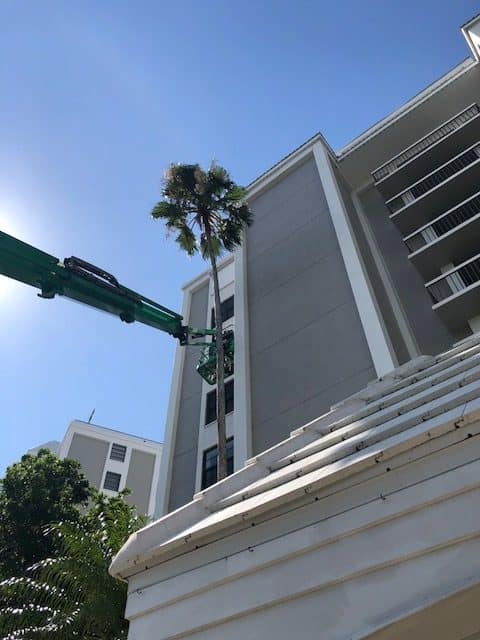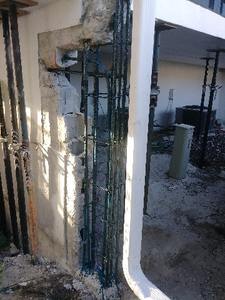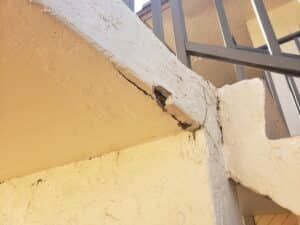Maintaining the structural integrity and aesthetic appeal of condominiums, homeowner associations (HOA), and commercial properties is no small feat. It involves an intricate mix of tasks, one of which is ensuring the effective waterproofing and sealing of these structures.
Yet, these aspects are often overlooked or improperly managed, leading to untimely wear and tear, costly repairs, or worse, significant damage. To navigate these potential pitfalls and arm yourself with the right knowledge, we present a comprehensive guide on waterproofing and sealants for such properties.
The Importance of Waterproofing
Waterproofing and sealants play a crucial role in safeguarding Condo-HOA and commercial properties from the detrimental effects of water damage. Properly installed and well-maintained waterproofing systems can provide numerous benefits, including:
1. Protection Against Water Damage: Effective waterproofing prevents water intrusion that could lead to structural deterioration and reduced property value due to rot, corrosion, and compromised building materials.
2. Mold and Mildew Prevention: By keeping moisture out of your property, waterproofing systems minimize the potential growth of mold and mildew, safeguarding the health of occupants and reducing health-related liability risks.
3. Energy Efficiency: Well-insulated and waterproofed properties help maintain stable indoor temperatures, potentially reducing heating and cooling costs.
4. Enhanced Property Value and Aesthetics: By preventing water-related issues, waterproofing and sealants contribute to the long-term value and appearance of your property.
Waterproofing Options
There are several waterproofing and sealant solutions available, each with unique advantages and suited to specific property types and environmental conditions:
1. Coatings: These liquid-applied, seamless systems can be applied to a variety of substrates, forming a durable, waterproof barrier. Examples are acrylic, urethane, and silicone coatings.
2. Membranes: Waterproofing membranes, such as rubberized asphalt, bituminous, or PVC, can be adhered to or mechanically fastened to the substrate, providing robust and long-lasting protection from water ingress.
3. Sealants: Sealants are adhesive-based materials used to fill gaps and joints in the building envelope, creating a watertight seal. Examples include polyurethane, silicone, and polysulfide sealants.
4. Combination Systems: By combining elements of the above options, you can create a tailored, multi-layer waterproofing solution to address your property’s unique needs and challenges effectively.
Common Waterproofing Issues
Inadequate or compromised waterproofing can lead to various issues that may have a lasting impact on your property:
1. Leaks: Poorly applied or degraded waterproofing systems can allow water to infiltrate your property, leading to visible leaks, moisture damage, and potential health hazards.
2. Deterioration: Continued exposure to water ingress can weaken building materials, such as concrete, steel, and wood, causing progressive structural deterioration and costly repair requirements.
3. Mold and Mildew: Persistent moisture in the building envelope can promote mold and mildew growth, posing health risks to occupants and potential liability concerns for property owners and managers.
4. Cosmetic Damage: Discoloration, staining, and efflorescence are common cosmetic issues resulting from ineffective waterproofing, which can detract from your property’s visual appeal and value.
Hiring a Certified Professional Contractor
Partnering with a certified, experienced contractor for your waterproofing and sealant projects is essential, providing several key benefits:
1. Expertise: Certified professionals possess the requisite skills, equipment, and knowledge to effectively assess potential water intrusion issues, recommend appropriate remediation measures, and execute high-quality installations and repairs.
2. Performance Guarantees: Reputable contractors stand behind their work, offering warranties on labor and materials that provide property owners with peace of mind and ensure ongoing protection.
3. Quality Assurance: Professional contractors adhere to industry best practices, manufacturer recommendations, and local building codes, delivering a waterproofing system tailored to your property’s specific needs.
4. Custom Solutions: By working with a knowledgeable contractor, you can develop a custom waterproofing solution that takes into consideration your building’s design, materials, and environmental factors, ensuring an effective and long-lasting result.
Understanding the Importance of Waterproofing in Condo-HOA and Commercial Properties
Proactive waterproofing and sealant maintenance is vital for preserving the appearance, functionality, and value of your Condo-HOA or commercial property. Gaining a deeper understanding of the importance of waterproofing, available options, common issues associated with water ingress, and the benefits of working with a certified professional contractor will empower you to make informed decisions and protect your property investment.
When selecting McLeod’s Contracting Solutions for your Condo-HOA or commercial property’s waterproofing and sealant needs in Fort Myers, you’re choosing a team of certified, experienced professionals dedicated to delivering top-quality service and results. Schedule a free consultation today, and discover the peace of mind and confidence that comes with partnering with our experts!







